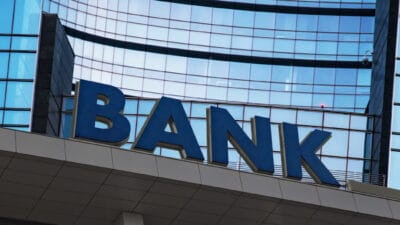Trust in Australia's big banks, including Commonwealth Bank of Australia (ASX: CBA), National Australia Bank Ltd (ASX: NAB), and Westpac Banking Corp (ASX: WBC) is up 19% among consumers in just 2 years. That's according to the latest results of comparison website Finder's Consumer Sentiment Tracker.
The report also analysed consumer saving habits and pay rise expectations. Let's take a closer look at the findings.
Trust in big banks at record highs
The level of trust in big Australian banks has been rising steadily since the end of the Royal Commission into Misconduct in the Banking, Superannuation and Financial Services Industry (Banking Royal Commission) in early 2019.
In May of that year, the metric sat at just 43%. As of April 2021, it sits at 62%. The survey does not specify what a big or small bank is. Finder only asked respondents about their levels of trust in 'big' or 'small' banks generally.
Graham Cooke, head of consumer research at Finder, said it was interesting to see this metric change in such a consistent way.
Mr Cooke said, "The initial lockdown seemed to spur fears that smaller banks might fail and may have resulted in a jump in trust of the big banks."
"Whether it was the compassionate measures taken for those in financial strife or the changes in operating procedures since the Royal Commission, it's clear that a significant number of Aussies are ready to trust big banks again," he added.
Despite the large increase in trust for big banks, smaller banks, such as Bank of Queensland Limited (ASX: BOQ), have managed to outpace them.
Trust in small banks currently sits at 68% in April, down from 71% in March. According to Mr Cooke, "Aussies report trusting the smaller players more than the big four – which is a great sign for all the neobanks entering the market."
Mr Cooke added that "smaller banks tend to be more popular with younger consumers than older ones."
Other findings
In positive signs for the Australian economy, consumer savings are up nearly $200 a month on average. Additionally, most respondents are expecting a pay rise within the next two years.
Despite an early dip in savings brought about by the COVID-19 pandemic, average savings balances have been able to recover and exceed their pre-coronavirus levels. This figure hovered between $600–$700 per month before the pandemic.
Economic uncertainty and working from home encouraged many Australians to increase their savings. The average amount of savings reportedly shot up to $989 in June 2020. It has since fallen, however, this figure is still significantly above pre-pandemic levels. Currently, it is sitting at $889.
Mr Cooke said this was an encouraging trend. He added that "Rates are low, but some accounts in the market are offering 20-30 times the interest of others."
Low interest rates may lead investors to move their money into other places, like the share market. When Finder asked economic experts, however, most (86%) believed the increased savings wouldn't continue.
Stephen Halmarick of Commonwealth Bank told Finder that a large part of the savings came from government income, which will now disappear. Tony Makin of Griffith University agreed, saying the savings boost was triggered by uncertainty.
As well, a record 56% of Australians believe they will be receiving a pay rise sometime in the next two years.
"Having seemingly weathered the storm and with job ads at a 12-year high, employees are expecting to be paid for their loyalty," Mr Cooke said.
63% of experts asked by Finder agreed wage growth would exceed 1.0% over the specified period.
Share price performance of the ASX big 4 banks
The Commonwealth Bank share price is up 0.24% today to $92.94 a share. Over the last 12 months, it's increased 56%.
National Australia Bank shares are down 2.96% after the release of the bank's Q3 results. They closed the day at $26.56. Since this time last year, the company's value has appreciated 63%.
The Westpac share price finished the day up 0.23% to $26.02 a share. ASIC opened an investigation into the big bank yesterday for possible insider trading. In 52-weeks, investors have seen a 66% return on investment (ROI) from Westpac shares.









